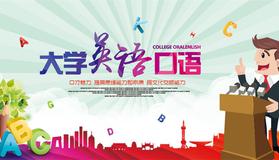-
1 扩展阅读
-
2 章节测验
Foreign Leaders Congratulate China on the Successful Beijing Olympics
More foreign leaders have sent telegrams and letters recently to congratulate China on the complete success of the Beijing Olympics between Aug. 8 and 24.
French President Nicolas Sarkozy said that the Beijing Olympic Games left a deep impression on him and the opening ceremony showcased the unique Chinese cultural heritage and fully demonstrated the slogan of the 29th Olympic Games — “One World, One Dream.”
Sarkozy said his visit to China opened up a new chapter of Chinese-French relations, from which their bilateral ties would develop firmly into the future. Macedonian President Branko Crvenkovski extended his congratulations to China on the successful Beijing Olympic Games.
“The world was greatly impressed by the perfect organization of the event and the outstanding achievements of athletes,” Crvenkovski said.
Mongolian President Nambaryn Enkhbayar also congratulated China on its successful hosting of the Games and the great achievements of the Chinese athletes. He said the Beijing Olympics is the geographically nearest Olympic Games to Mongolia and the Mongolian people are very pleased that their athletes achieved unprecedented results of two gold medals and two silver medals at the Games.
The Emir of Kuwait Sheikh Sabah al-Ahmad al-Sabah said that China had organized the Beijing event elaborately and the performance at the opening and closing ceremonies were brilliant. It won China widespread praise and represented the lofty principles of the Olympic Games to seek peace and friendship among different countries and peoples.
“The Beijing Olympics conveyed the message of harmony, openness and peace,” said Afghan President Hamid Karzai.
Mauritian President Anerood Jugnauth said the Beijing Olympic Games were a huge success and would surely be etched in people’s memory. “The organization work of the Beijing Olympics was large-scale and efficient. But what was more impressive was the 1.5 million volunteers who were always ready to serve with their constant smile,” said the president.
Cameroonian President Paul Biya said that China has staged an unforgettable Olympics to the athletes and delegations from five continents thanks to its great efforts in preparation and organization. “China once again proved that it is a sporting giant which also boasts rich cultural heritage” he added. Moroccan King Mohammed VI said he kept a close eye on various Olympic events with admiration.
The splendid opening and closing ceremonies of the Beijing Olympics showed China’s profound culture and wisdom of its people. While the various Olympic sports events manifested the great Olympic ideal and sublime competitive sports spirit.
Moldova Parliament Speaker Marian Lupu said both the Beijing Olympics and the excellent performance of the Chinese athletes would go down in the world’s sports history.
“The success of the Beijing Olympics once again proved that sports are playing an increasingly big role in the world, and it has become the bridge of peace and unity among people of the world,” he said.
President of the Latin American Parliament (Parlatino) Jorge Pizarro said that in an age of constant conflict, it was of special importance to seize every opportunity to advocate the real universal values and ethics such as solidarity, friendship and respect for different cultures, while the Chinese people have successfully made it happen. “Young people from various countries of the world participated in the Olympics, which has caught world attention, and it greatly encouraged us to strive to realize a global community characterized by dignity and harmony,” said Pizarro.


